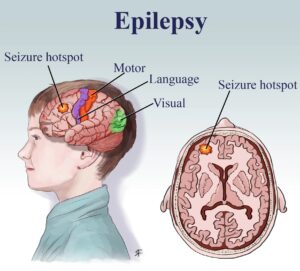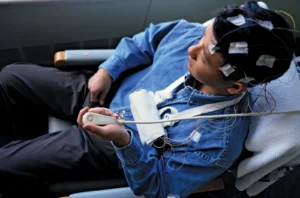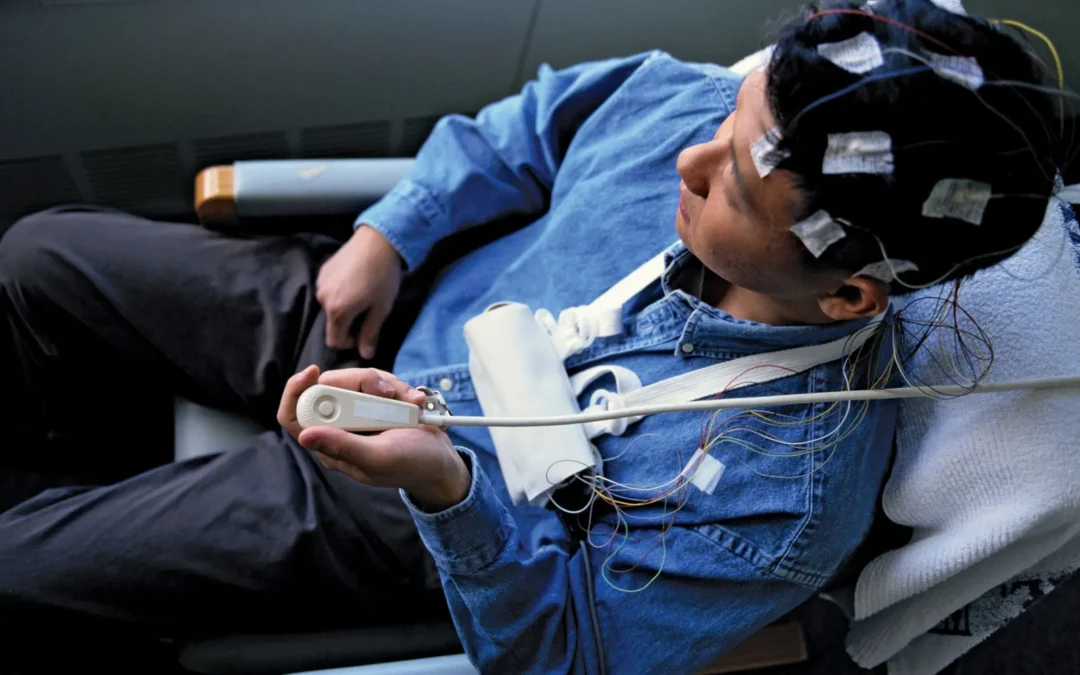Epilepsy and Nutrition: How Diet Can Help Manage Seizures
Epilepsy is a neurological disorder characterized by recurrent, unprovoked seizures caused by abnormal electrical activity in the brain. It affects people of all ages and varies in severity. While medical treatments such as anti-epileptic drugs (AEDs) and surgery are commonly used, dietary interventions can also play a crucial role in managing epilepsy naturally.

Epilepsy and Nutrition
Causes of Epilepsy
Several factors contribute to epilepsy, including:
- Genetic Factors – Family history and inherited mutations.
- Head Injury – Trauma from accidents or falls.
- Brain Conditions – Stroke, tumors, or infections like meningitis.
- Prenatal Injury – Brain damage due to malnutrition or infections during pregnancy.
- Developmental Disorders – Conditions such as autism and neurofibromatosis.
Symptoms of Epilepsy
Common epilepsy symptoms include:
- Seizures – Can range from focal (affecting one part of the brain) to generalized (affecting the entire brain).
- Temporary Confusion – Feeling disoriented after a seizure.
- Staring Spells – Brief moments of unresponsiveness (common in absence seizures).
- Jerking Movements – Repetitive muscle twitches in hands and legs.
- Loss of Consciousness – Some seizures cause a complete loss of awareness.
- Psychological Symptoms – Anxiety or fear before or after seizures.

Epilepsy and Nutrition: How Diet Can Help Manage Seizures
Diagnosis of Epilepsy
Doctors use various methods to diagnose epilepsy, including:
- Medical History & Neurological Exams – Assessing brain function and symptoms.
- Electroencephalogram (EEG) – Monitoring brain waves for abnormal activity.
- Brain Imaging (MRI/CT Scan) – Detecting structural abnormalities.
- Blood Tests – Ruling out other conditions causing seizures.
Treatment Options for Epilepsy
Treatment for epilepsy depends on the type and severity of seizures. The most common options include:
- Anti-Epileptic Drugs (AEDs) – Medications to control seizures.
- Surgery – Removing the brain area causing seizures if medications fail.
- Vagus Nerve Stimulation (VNS) – A device that sends electrical signals to the brain.
- Responsive Neurostimulation (RNS) – A device that detects seizure activity and stimulates the brain to prevent seizures.
- Ketogenic Diet – A low-carb, high-fat diet that has shown promise in reducing seizures.

Epilepsy and Nutrition
The Role of Nutrition in Epilepsy Management
A well-balanced diet is essential in managing epilepsy and supporting brain health. The right dietary choices can help reduce seizure frequency and improve overall well-being.
Best Diets for Epilepsy
Several specialized diets can aid in seizure management, including:
1. Ketogenic Diet
The ketogenic diet is a high-fat, low-carbohydrate diet that forces the body into ketosis, where fat is used as the primary energy source instead of glucose. Studies suggest that this metabolic state may reduce seizure frequency, especially in drug-resistant epilepsy.
2. Modified Atkins Diet (MAD)
Similar to the ketogenic diet but more flexible, the Modified Atkins Diet (MAD) allows a broader range of foods while still maintaining a low carbohydrate intake. It is easier to follow and may help control seizures effectively.
3. Low Glycemic Index Treatment (LGIT)
The Low Glycemic Index Treatment (LGIT) focuses on consuming foods with a low glycemic index to stabilize blood sugar levels, which may help prevent seizures in some individuals.
Key Nutritional Principles for Epilepsy Management
- Consistency – Strict adherence to a prescribed diet ensures better seizure control.
- Adequate Nutrient Intake – Monitoring vitamins and minerals to prevent deficiencies due to dietary restrictions.
- Hydration – Staying properly hydrated, as dehydration can act as a seizure trigger.
- Avoiding Seizure Triggers – Limiting caffeine, alcohol, and processed foods known to trigger seizures in some people.
Final Thoughts
Managing epilepsy involves a combination of medical treatments and dietary interventions. The ketogenic diet, Modified Atkins Diet, and Low Glycemic Index Treatment have all shown promise in reducing seizure frequency. By incorporating a well-balanced diet rich in essential nutrients, individuals with epilepsy can enhance brain health and improve overall well-being.
If you or a loved one has epilepsy, consult with a healthcare professional or registered dietitian to determine the best nutrition plan for your needs.
Stay informed, stay healthy! For more expert nutrition tips, follow Nutriewind – your trusted source for evidence-based dietary guidance.

